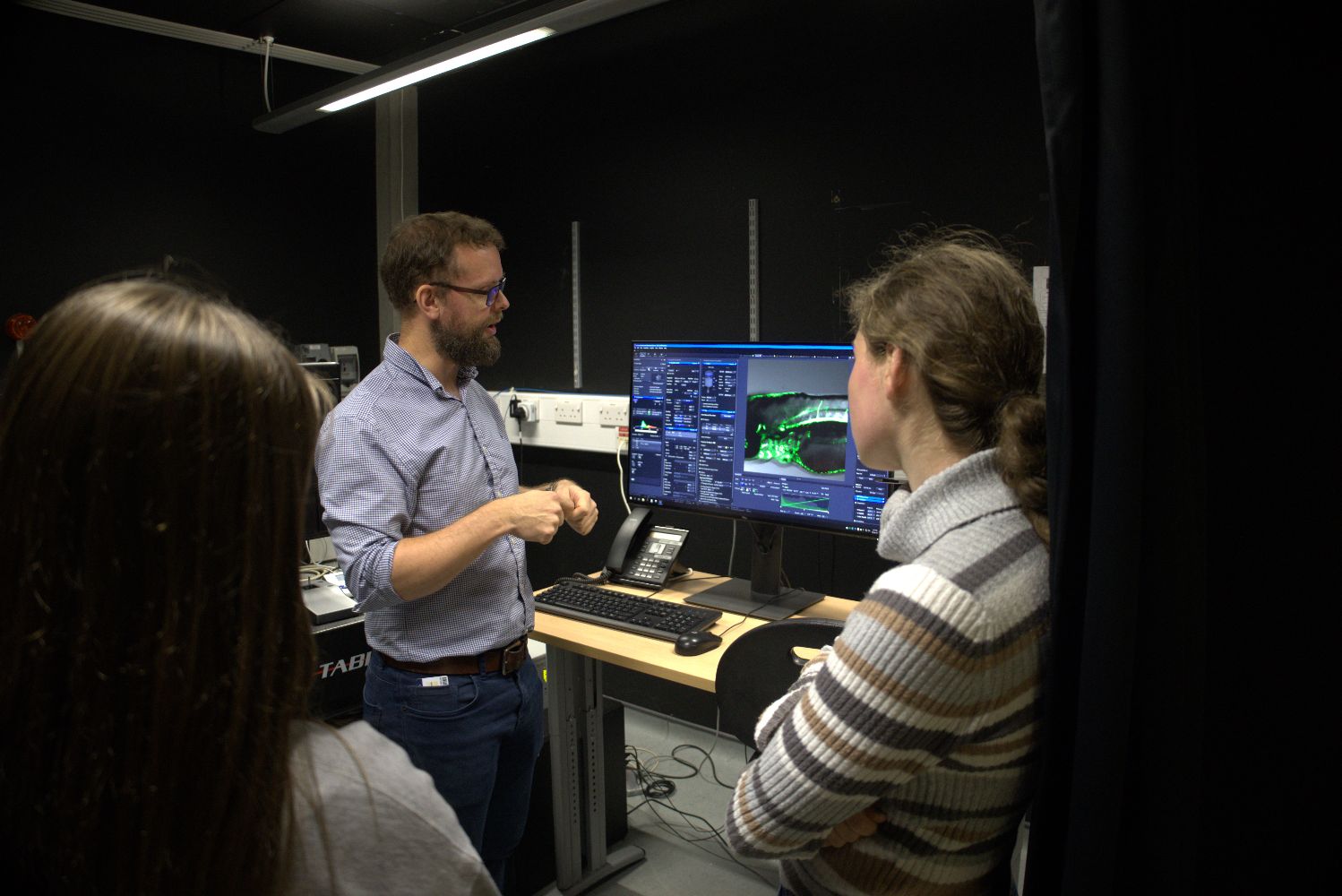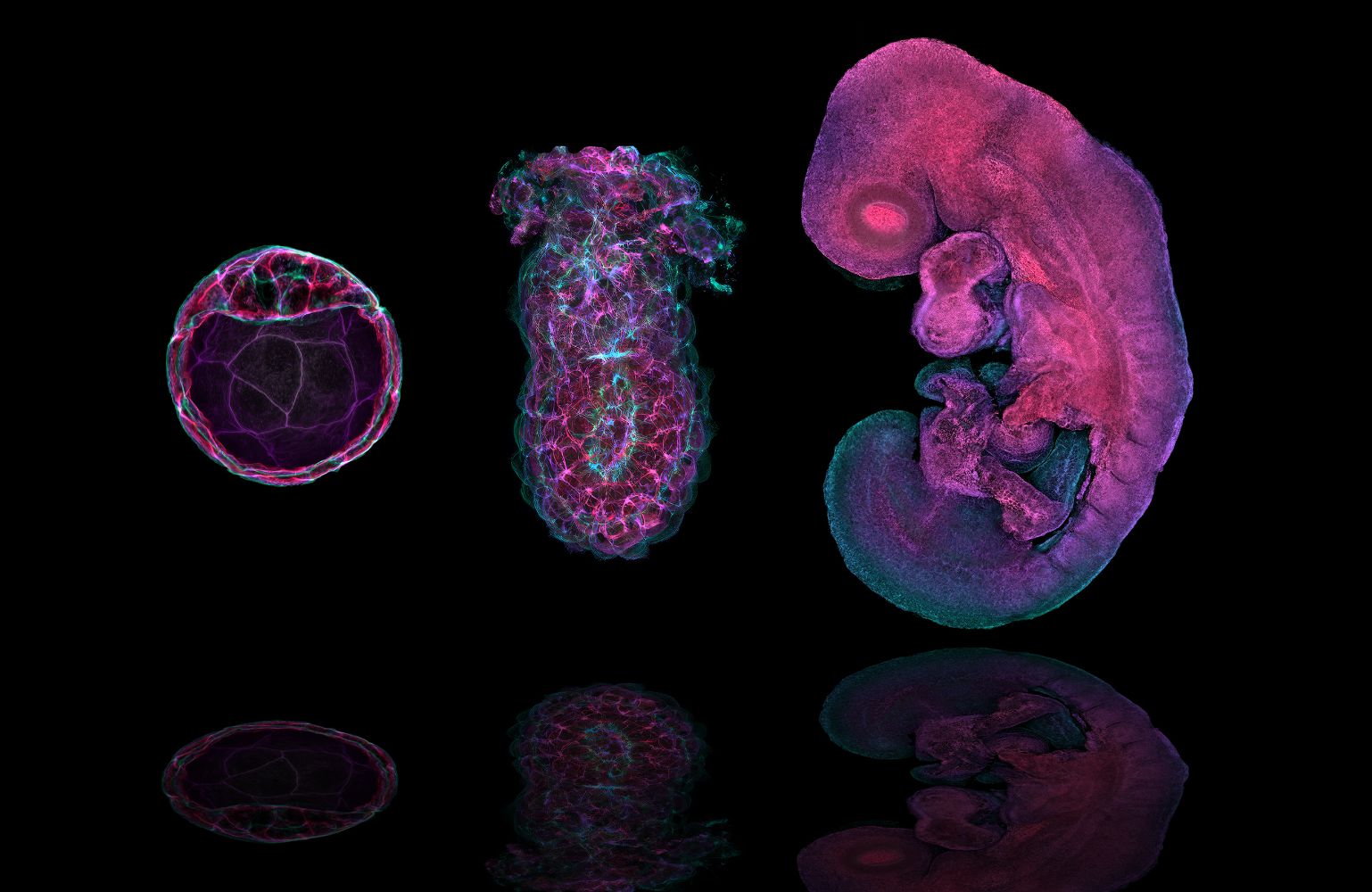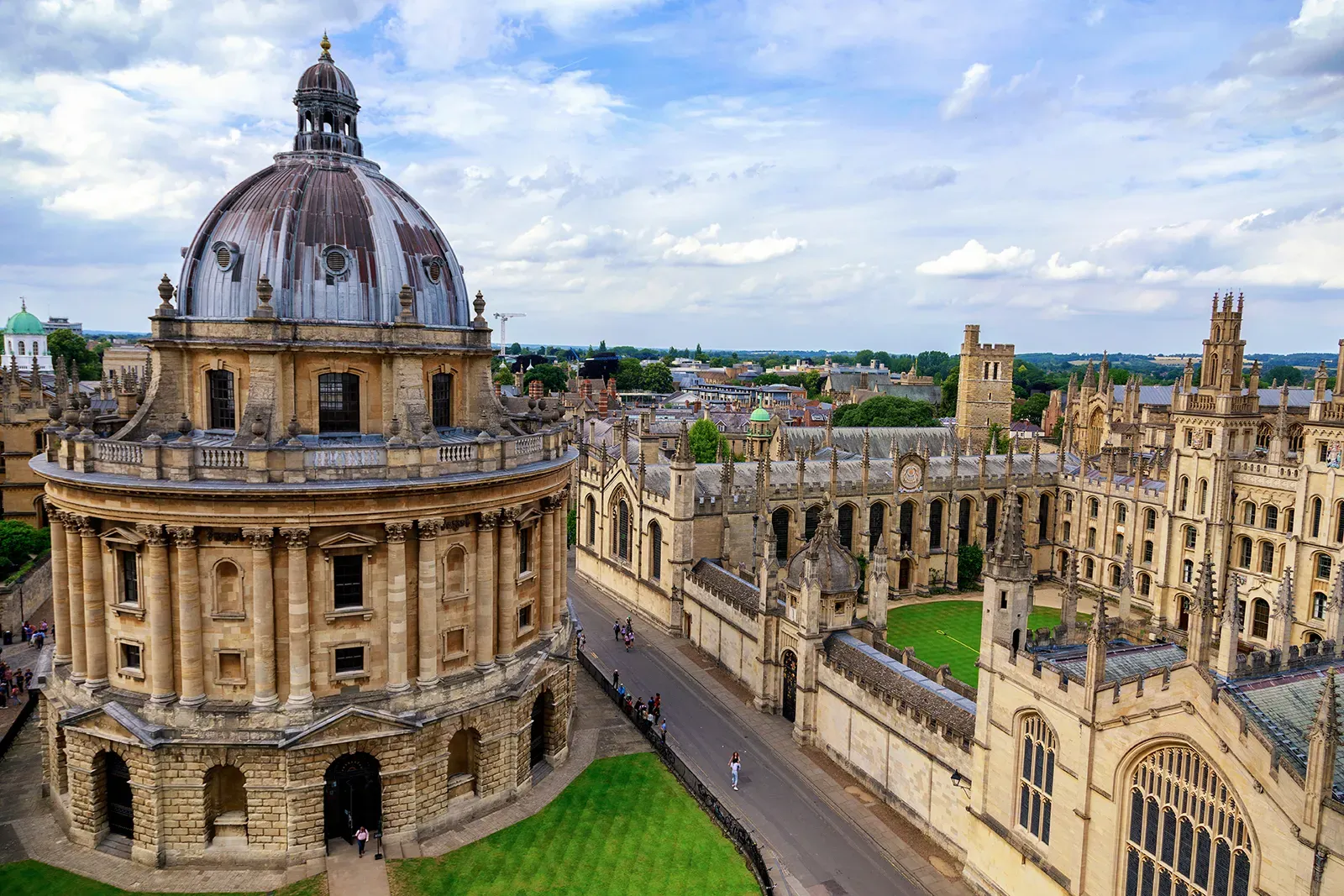For Schools and Students
We believe it is vital to inspire the next generation of scientists, foster curiosity, and bridge the gap between academic research and education. Our researchers are proud to help cultivate future researchers and encourage innovative thinking by engaging young minds through hands-on experiences. These connections also help us strengthen community ties and ensure that our scientific advancements benefit society as a whole.

Biomedical Research Career Week
Ever wondered what a biomedical researcher does?
Do you have a curious mind?
Are you fascinated by how biology works - both inside your body and out in nature?
Join researchers at the Institute of Developmental and Regenerative Medicine (IDRM), the Ludwig Institute for Cancer Research (LIC), and the Centre for Human Genetics (CHG) for an immersive week in the lab. You’ll gain hands-on experience, learn how researchers think, and uncover the challenges, motivations, creativity, and curiosity that drive their work. Meet scientists and professionals from a range of disciplines who work together to advance our understanding of developmental biology, neuroscience, cardiovascular science, immunology, cancer biology, genetics, and genomics.
Who Can Apply?
We would love to hear from you if you are:
- In Year 12 at the time of application and aged 16 years+
- Studying at a UK-based state school
- Currently studying STEM subjects
- Able to travel to and from the Old Road Campus each day; typical programme hours will run between 10:00am-5:00pm
Your application will be prioritised if you are:
- The first in your immediate family to attend higher education (meaning your parents, step-parents, adoptive parents, guardians or siblings have not completed a higher education qualification)
- You are eligible for free school meals and/or pupil premium
You are not eligible to apply if you are:
- Studying at a fee paying school
- Studying abroad
- Studying at a UK-based International school

How To Apply?
Applications will open in early 2026. All students must complete an online application form (link will be provided once applications open).
We run all responses through AI checkers and we eliminate answers found to have a high AI content. We are looking for real, personable, answers and not perfect responses.
This programme is funded by the J.W. Jenkinson Memorial Fund
The J.W. Jenkinson Memorial fund was founded in memory of John Wilfred Jenkinson, a pioneer in the fields of comparative and experimental embryology, to promote research and education in developmental biology.


Student Accommodation Sponsorship
The following colleges kindly support student accommodation for those eligible:
- Jesus College - sponsors accommodation for students attending from Wales.
- Oriel College - sponsors accommodation for students attending schools located in the following regions: Dudley, Walsall, Wolverhampton, Worcestershire, and Herefordshire.
- Magdalen College - sponsors accommodation for students attending schools located in the following regions: Barnsley, Brent, Nottingham, Nottinghamshire, Rotherham, Sheffield, and Westminster.
- Jenkinson Memorial Fund - sponsors accommodation for a limited number of students.
Frequently asked questions
Those with curious minds who wonder about how bodies form, how they work to maintain homeostasis, or what happens when a biological mechanism works against them. Those who are interested in studying biological sciences or related fields, considering research in biomedical sciences, or any related applied sciences such as bioengineering, biophysics, bioinformatics, and so on. If reading profiles of different research conducted at IDRM, LICR, and CHG gets you interested, this is for you.
There is no participation fee unless you are arranging your own accommodation (accommodation, breakfast, and dinner). Lunch and local transport are provided by the Jenkinson Memorial Fund.
The content varies between the participating Institutes, and you will be assigned to one Institute for all of your practical sessions. However, many techniques are shared between different branches of biology, and you will all have similar lab experiences. Examples of practical sessions include, but are not limited to, gel electrophoresis, PCR, mini prep, advanced light microscopy (laser scanning confocal and/or others), etc. Each practical is devised by researchers as something representative of their daily work.
There is no public parking available on Campus. However, there are a number of buses that go to the Headington High Street, as well as directly to the Campus.
Our laboratory spaces are wheelchair accessible. However, please note that most benches are set at a height of approximately 65cm, which may present challenges for some individuals.
If you have a physical disability, we are committed to working with you to ensure you can participate meaningfully in the programme. If you have the opportunity to accept a placement offer, we’ll arrange a conversation to understand your specific needs and explore suitable adjustments or alternative arrangements together.
We understand that caring responsibilities can make participation more challenging, and we want to support you wherever possible. We do have some provisions in place for young carers.
If this applies to you, please speak with your pastoral care teacher once you receive our placement offer. They can speak with us so we can explore how best to support your involvement in the programme.
A very limited number of accommodation spaces are available. If you live more than one hour away by public transport, we strongly recommend arranging your own accommodation.
We accept a total of 18 students per cohort. Group activities from Monday to Thursday morning and Friday afternoon are conducted with all 18 students together. For practical sessions, students are split across three locations:
- 8 students at IDRM
- 6 students at LICR
- 4 students at CHG
To make the most of the programme, we recommend exploring each Institute’s website to see which aligns best with your interests. While the practical techniques may be similar across sites, each research group applies them differently depending on their specific research aims.
You’ll be asked to indicate your preferences for where you'd like to complete your practicals, so it’s worth considering this carefully.
Above all, treat this programme as a unique opportunity to meet, talk with, and learn from a wide range of researchers and professionals working in academic research within your field of interest.
No — this is not a work experience programme. It is a structured educational programme, and we are unable to support its classification as work experience.
Risk assessments and other relevant documentation can be provided to the schools of accepted students upon request.
|
|
Morning |
Afternoon |
|
Day 1 |
|
|
|
Day 2 |
|
|
|
Day 3 |
|
|
|
Day 4 |
|
|
|
Day 5 |
|
|


